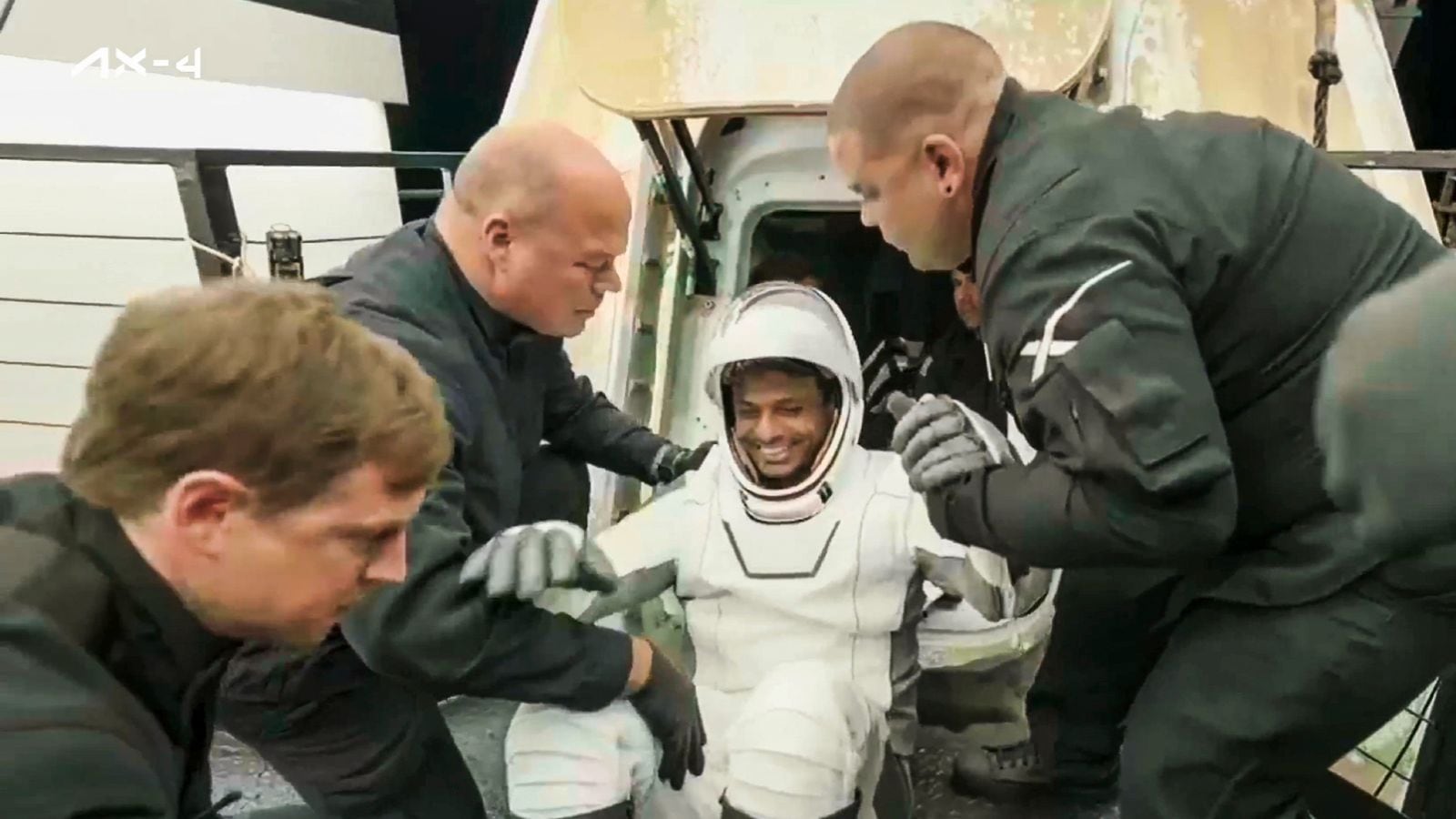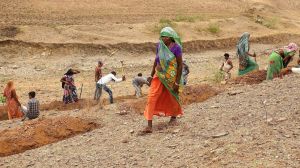Stay updated with the latest - Click here to follow us on Instagram
Methi sprouting to microalgae: 7 experiments Shubhanshu Shukla conducted in space
Shubhanshu Shukla successfully finished all seven microgravity experiments and other planned activities. The experiments were on the Indian strain of Tardigrades, Myogenesis, Sprouting of methi and moong seeds, Cyanobacteria, Microalgae, Crop seeds and Voyager Display.
 Axiom-4 mission crew member and astronaut Shubhanshu Shukla reaches Earth with other crew members of the mission after the Dragon spacecraft splashed down off California. (PTI)
Axiom-4 mission crew member and astronaut Shubhanshu Shukla reaches Earth with other crew members of the mission after the Dragon spacecraft splashed down off California. (PTI)Marking a major milestone for India’s space ambitions, Indian Air Force test pilot and astronaut Shubhanshu Shukla has returned to Earth after an 18-day space mission onboard the SpaceX Dragon spacecraft.
A part of the Axiom-4 spacecrew, Shukla was accompanied by fellow astronauts Peggy Whitson from the US, Slawosz Uznanski-Wisniewski from Poland, and Tibor Kapu from Hungary. This mission not only strengthens India’s foray into human spaceflight but also showcased its growing contribution to space research through a series of significant experiments led by Shukla aboard the International Space Station (ISS).
During his time in space, Shukla conducted and completed all seven microgravity experiments and other scheduled scientific tasks. These included research on Indian strain of Tardigrades, Myogenesis, Sprouting of methi and moong seeds, Cyanobacteria, Microalgae, Crop seeds, and the Voyager Display.
Axiom Space confirmed that the Axiom-4 mission conducted the highest number of scientific experiments compared to any of its previous flights. These studies are expected to deliver transformative insights in areas like diabetes management, cancer treatment innovation, and human health monitoring—on Earth and beyond.
Among the most crucial of Shukla’s experiments was the study of space microalgae to examine their ability to generate food, oxygen, and biofuels. The resilience of microalgae in microgravity is considered key to sustaining human life during extended space missions. Additionally, through centrifugation of cyanobacteria, Shukla compared two strains to understand the impact of microgravity on their growth and biochemical activity.
In another significant experiment, Shukla conducted microscopic observations and sample collection for the Myogenesis study, aiming to understand muscle cell behaviour in space. The results are expected to benefit not just future Moon or Mars missions but also medical treatments for muscle-wasting diseases and age-related immobility on Earth.
He also investigated muscle atrophy using the Life Sciences Glovebox facility and contributed to sustainable space agriculture by irrigating crop seeds under microgravity conditions. As part of the Sprouts project, he observed how methi and moong seeds germinate in space. Afterwards, Shukla subjected the sprouts to -80 degree Celsius temperatures to study the impact of microgravity on seed development. Upon return to Earth, he will cultivate the seeds, and multiple generations will be observed for any changes in genetics, microbial ecosystems, and nutritional profiles, aiming to identify plants with desirable traits for sustainable farming in space.
Shukla and his crewmates participated in several collaborative studies to assess astronaut health and safety. These included measuring radiation exposure with the Rad Nano Dosimeter, studying mental and cardiac health during prolonged spaceflight, observing heat transfer and the human body’s adaptability to microgravity and conducting neuromuscular electrical stimulation sessions to explore ways to combat muscle loss in space.
During his mission, Shukla referenced Rakesh Sharma’s historic 1984 remark—“Saare Jahan Se Achha”—and received praise from Prime Minister Narendra Modi. In one of this interactions with students, Shukla had mentioned how he was left sleepless due to the excitement to do more experiments in space.






